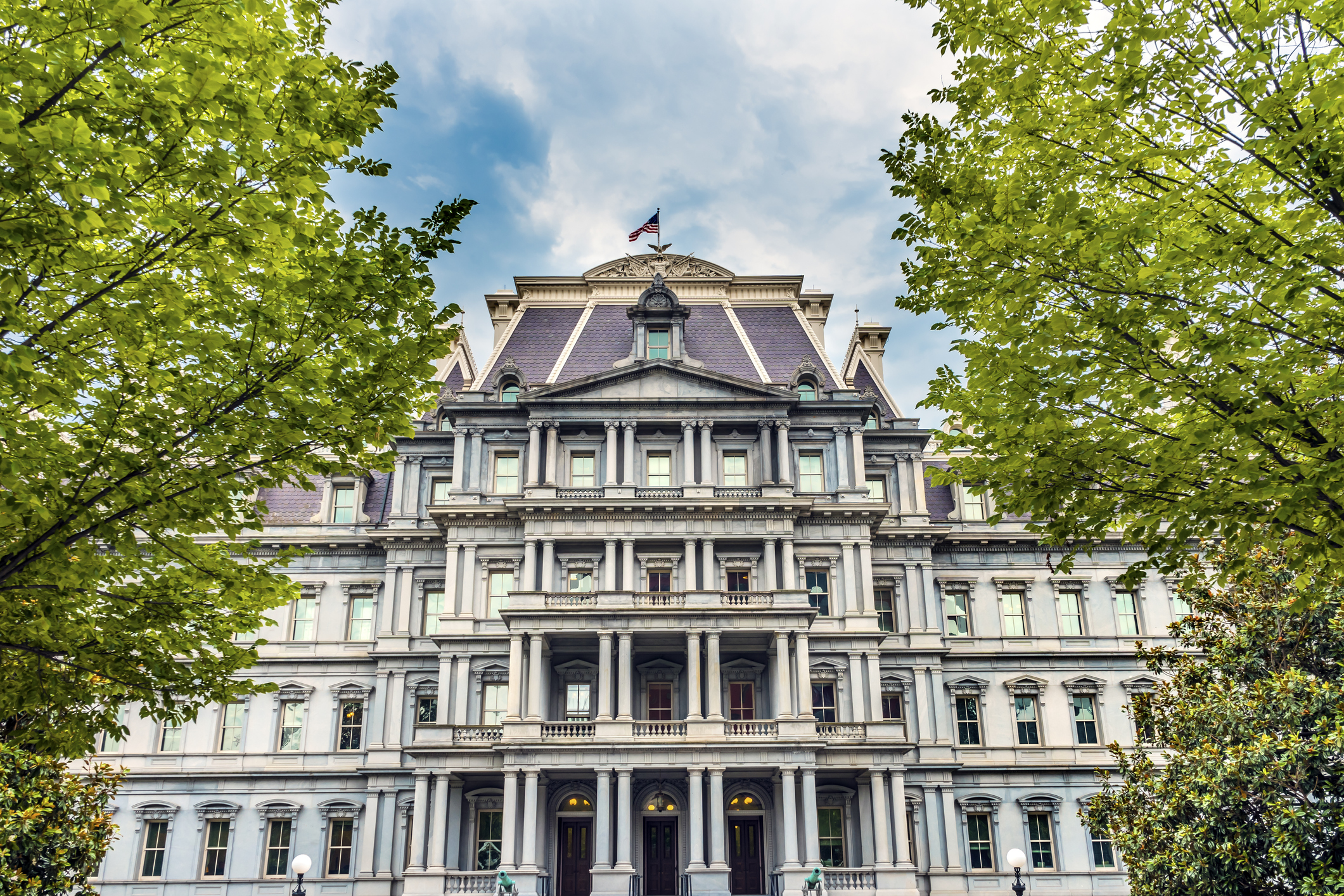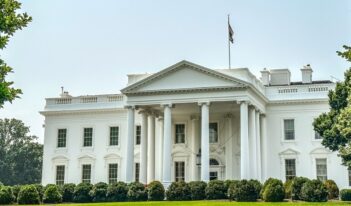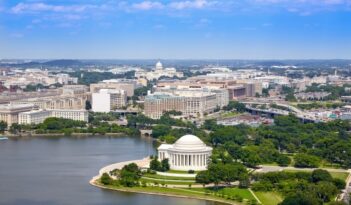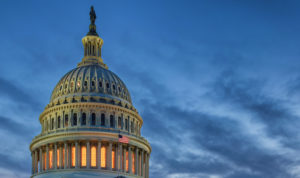
Front-line workers in federal agencies play a key role in applying the Constitution to administrative cases.
The government officials who make day-to-day decisions on millions of applications, filings, and other administrative matters that come to federal agencies each year are sometimes considered mindless bureaucrats. Yet in performing their day-to-day duties, these “street-level” employees also can sometimes perform their own interpretations of constitutional law.
Administrative constitutionalism—the label given to constitutional interpretations made by or within government agencies—need not entail policy memoranda from senior or even mid-level officials. Sometimes, it takes place in the trenches. As demonstrated by recent waivers granted to individuals subject to President Donald J. Trump’s travel ban, the work of administrative constitutionalism sometimes occurs in the shadow of a legal defeat. The work matters, however, both because of the people it helps and because of street-level administrative constitutionalism’s ability to keep alive a vision of more responsive government.
Although scholars of administrative constitutionalism have recognized the importance of street-level interactions, they have focused most closely on the work of mid-level and senior officials, often documenting the officials’ role in their agencies’ promotion of rights outside the courts.
For example, Karen Tani has described federal welfare officials who cited constitutional values to temper states’ moralistic or invidious restrictions on public assistance. Sophia Lee has studied the Federal Communications Commission’s push to promote diverse workplaces for broadcast licensees. Jeremy Kessler has recounted the resourceful campaign by War Department lawyers like future Supreme Court Justices Felix Frankfurter and Harlan Fiske Stone during World War I to expand the definition of conscientious objector status to all those with sincere and principled objections to participation in armed conflict.
After policymakers weigh in, administrative law plays out at the “street level,” where line-level workers implement administrative expansions and restrictions. As Michael Lipsky noted in 1980 in his ground-breaking book, Street Level Bureaucracy: Dilemmas of the Individual in Public Services, benefit recipients and their advocates try to obtain relief that meets their individual circumstances when dealing with federal agencies. Workers at the front lines within these agencies exercise discretion, for good and ill, when making decisions about individual cases. That discretion can be arbitrary and abusive, but it can also reflect values about constitutionalism, equity, and compassion.
Indeed, the discretion built into street-level administrative constitutionalism can work even when larger interventions are stymied.
Smaller-scale interventions have a variety of advantages. They work person to person, and often face to face. These settings can carve out space for connection. As the larger climate for the protection of constitutional rights improves, administrators can leverage that moment to enlarge the space for empathy and compassion.
Similarly, street-level administrative constitutionalism can spur continued mobilization of advocacy resources and popular support, even when the larger battle seems lost. In this sense, street-level work harmonizes with theories of public interest lawyering that focus on the need for community mobilization and client empowerment for long-term gains.
As an example, consider the tireless efforts of lawyers at the Center for Constitutional Rights (CCR) and students at Yale Law School to aid Haitian refugees confined at Guantanamo in the early 1990s. Led by Harold Koh of Yale and Michael Ratner of CCR, clinical law students and lawyers worked with immigration officials to secure entry to the United States for clients whom the United States had detained, including some clients who had serious health needs such as HIV-positive status.
This street-level advocacy before U.S. administrative agencies occurred in an interstitial space as a broader lawsuit proceeded over the government’s authority to intercept and repatriate Haitians on the high seas fleeing a repressive government. Ultimately, the Haitians lost at the Supreme Court on the legal question about government power; but in the administrative space in which the CCR and Yale advocates toiled, hundreds of people received a chance at a better life.
Importantly, those efforts also gave CCR important experience in dealing with the unique challenges of Guantanamo, which was helpful once the government started detaining suspected terrorists there after the September 11 attacks by al-Qaeda. Advocates for the people held at Guantanamo worked avidly to help clients in the years prior to the Supreme Court’s ruling that detainees had to be given access to the courts. Before the courts established legal access, the Guantanamo lawyers were unsure of the showing they had to make to government officials to obtain their clients’ release.
Advocates tried an array of strategies: mobilizing public opinion abroad, campaigning in the media to bring home the hardships their clients faced, and leveraging goodwill efforts with U.S. allies whose nationals were detained at Guantanamo. Scores of detainees were released during this period, as advocates like Professor Muneer Ahmad demonstrated that their clients had no ties to terrorism or no longer posed a danger. Through their work with street-level administrators, the advocacy community developed valuable knowledge of the situation “on the ground” at Guantanamo that was beneficial once courts established a legal framework for detainees’ relief. Advocates who had pioneered Guantanamo representation, including CCR’s Shayana Kadidal and the clinical law professor Joseph Margulies shared knowledge with pro bono attorneys from large law firms and others who had rushed to fill the need.
A similar dynamic has occurred following the Supreme Court’s decision in Trump v. Hawaii upholding President Trump’s travel ban, which severely restricted otherwise lawful immigration from five predominantly Muslim countries—Iran, Libya, Somalia, Syria, and Yemen—as well as North Korea and Venezuela.
The administrative waiver process, like the informal path to securing release of Guantanamo detainees after September 11, has often been both demoralizing and opaque. Nevertheless, advocates diligently pursue waivers for their clients, based on undue hardship, lack of threat to the United States, and the overall national interest. Many people have been summarily denied, but some have received the coveted waiver, including the celebrated case of a mother from Yemen who received a waiver to see her dying son. All told, over 2,500 individuals have received waivers, often for pressing medical or family reasons. This is a small percentage of the otherwise eligible universe of visa applicants from the covered countries. For the people affected, however, the waiver is a life-changing gift.
Moreover, advocates also pushed in court to make the waiver less opaque and more consistent. That waiver process, while it occurred in the shadow of the Supreme Court’s disappointing decision in Trump v. Hawaii, has kept alive the promise of legal relief and carved out space for empathy and connection.
Street-level administrative constitutionalism is hardly a panacea. This mode of advocacy risks distracting from the larger battle and legitimizing gratuitously cruel policies. But street-level administrative constitutionalism keeps attention focused on the issues and allows advocates and administrators to envision an alternative framework that may emerge at a more auspicious time. That vision also vindicates administrative constitutionalism’s promise.




